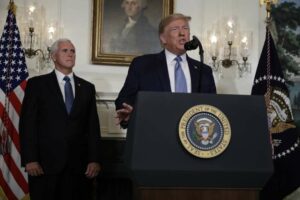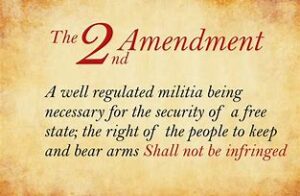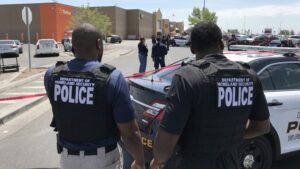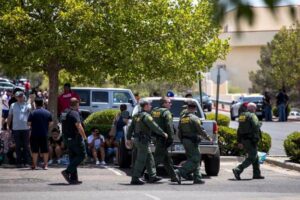Donald Trump today laid the blame on the mass shootings at the feet of several institutions and cultural trends.
He blamed the Internet for promoting violence, the media for their “fake news” reporting, a lack of mental health awareness and care, the preponderance of violence-ridden video games.
I’ll accept that most of those causes as valid areas of concern; the media, though, have been singled out only because of the president’s hatred and mistrust of them.
What he didn’t do was take any personal responsibility for the coarseness of the political dialogue. Therefore, if I were writing his remarks, I would have added something like this:
Finally, and most significantly, I want to call attention to the coarse rhetoric that has infected our political discourse. I also want to express my personal regret for contributing to it.
Yes, I declared my presidential candidacy in 2015 with a direct assault on Latin American immigrants who were — and still are — crossing our border illegally. However, I went too far in ascribing criminal intent to too many of them. For that I apologize.
Furthermore, from this day forward I am going to dial back my own hard-bitten rhetoric. I will pledge to work openly toward developing a more civil political climate.
My regret runs deep and I am sorry for whatever I have done to inflame the deeply held passions to which I have referred already in the wake of the El Paso and Dayton massacres.
Why didn’t he say that? It’s simple. Donald Trump does not possess the gene that allows him to express regret for any mistake he commits. So he shrouds institutions and people all around him with blame and responsibility for matters that he –as the president of the United States — has the power to control all by himself.
He once said that “I, alone” can fix what ails the country. He ought to say that “I, alone” will demand an end to the hate-filled rhetoric that has poisoned our political atmosphere.








